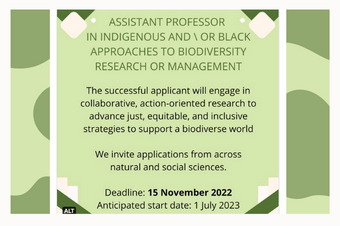
2024 NACCB “Critical Ecosystems vs. Critical Minerals?” Plenary Recording
For those who were unable to attend this NACCB session, or who would like to revisit the topics discussed, we now have a Kaltura recording available of the NACCB Plenary “Critical Ecosystems vs. Critical Minerals?” available.
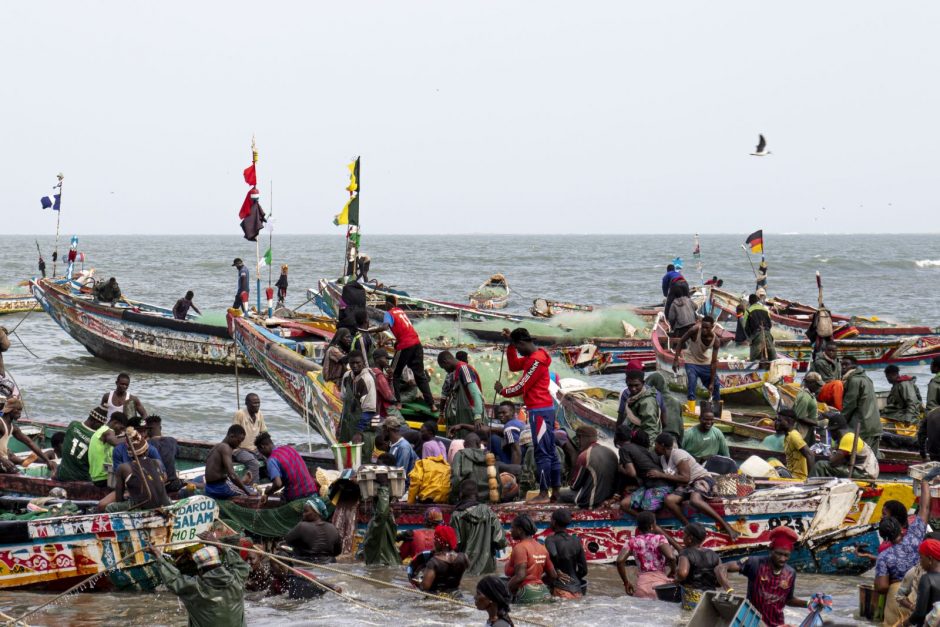
Charting a Blue Future for Cooperation between West Africa and China on Sustainable Fisheries
Written by IBioS faculty member Dr. Rashid Sumaila and colleagues, this report offers the governments of West African states and the People’s Republic of China clear, concise, and actionable recommendations to foster sustainable fisheries management and counter IUU fishing in the Gulf of Guinea and beyond.
An IBioS/SEEDS Co-Sponsored Studentship: Human-Wildlife Conflict Management at UBC: A case study using bats
Author: Hannah Griebling
“This case study examines the university response to the presence of a bat roost in a campus building. The bats species present in the roost have a Blue-list designation by the province due to the new threat of white-nose syndrome in western Canada. This case study serves as an opportunity to examine University response to human-wildlife conflict, and how to best support vulnerable mammal species living on campus through urban development and climate change.”
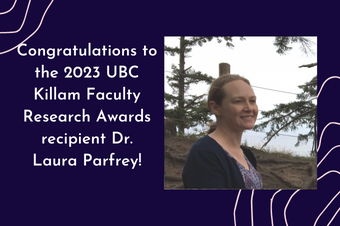
Congratulations to the 2023 UBC Killam Faculty Research Awards recipient Dr. Laura Parfrey!
Learn more about Dr. Laura Parfrey’s work here.
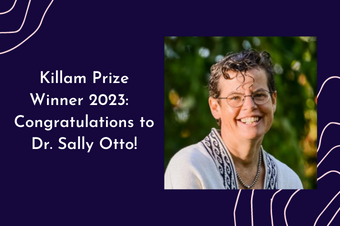
2023 Natural Sciences Killam Prize Winner: Sally Otto
Sarah (Sally) Otto is a Killam Professor and CRC Tier 1 Chair at the University of British Columbia. Dr. Otto is recognized globally for her many contributions to evolutionary biology. She has developed the mathematical foundation for the leading theory on the evolution of sexual reproduction in nature. Dr. Otto’s work has changed our understanding of the evolution of sexual reproduction and genome evolution. Dr. Otto is the world authority on a wide range of theoretical topics in evolution and has written the standard textbook on mathematical methods for ecology and evolutionary biology. Dr. Otto launched and directs the Liber Ero program, a Canadian-wide postdoctoral program supporting and developing leaders in conservation. During the pandemic, she has been a co-leader of the BC COVID-19 modelling group and CoVaRR-Net’s ‘computational biology and modelling’ pillar. Dr. Otto’s research has resulted in 200 publications and a book, with ~25,000 citations.

2023 Tyler Prize for Environmental Achievement: Daniel Pauly and Rashid Sumaila are winners
Two courageous UBC ocean fisheries experts – marine biologist Dr. Daniel Pauly and fisheries economist Dr. Rashid Sumaila — have been awarded the 2023 Tyler Prize for Environmental Achievement.
The award, administered by the University of Southern California, has often been described as the ‘Nobel Prize for the Environment.’
Both are University Killam Professors at the University of British Columbia, and long-time colleagues at its Institute for the Oceans and Fisheries. They said that winning this prize gives them an opportunity to spread an urgent and evidence-based message: all fishing on the high seas should be banned.
“Creating no-take marine reserves is something we must do. Banning fishing in the high seas, which is the area outside the 200-nautical-mile zones of maritime countries, will create a critically-needed ‘fish bank’ for the world,” said Sumaila, who is the Canada Research Chair in Interdisciplinary Ocean and Fisheries Economics, and is jointly appointed at UBC’s School of Public Policy and Global Affairs.

‘Extractivism’ is destroying nature: to tackle it Cop15 must go beyond simple targets
“At the biodiversity Cop taking place in Montreal, much attention will focus on a policy proposal calling for 30% of the planet’s land and oceans to be protected by 2030, known as 30×30. Protected areas have their place in addressing the biodiversity crisis, but we also know that they are insufficient. Since the 1970s, they have increased fourfold globally, expanding to about 17% of the planet, but extraction rates have more than tripled. This unrelenting expansion of forestry, mining, monoculture farming and fossil fuel developments is a central driver of biodiversity loss. Ending or at least reducing “extractivism” must be front and centre at Cop15.”
Read more in the article by Rosemary Collard and IBioS Faculty Professor Jessica Dempsey.
Hiring: Faculty Position: Assistant Professor in Indigenous and/or Black approaches to biodiversity research or management
The Department of Geography at the University of British Columbia, Vancouver Campus, invites applications for a tenure-stream Assistant Professor specializing in Indigenous and/or Black approaches to biodiversity research or management. The successful applicant will engage in collaborative, action-oriented research to advance just, equitable, and inclusive strategies to support a biodiverse world.
For more information, see the link below.
https://geog.ubc.ca/job-opportunities/faculty-position-000135992/
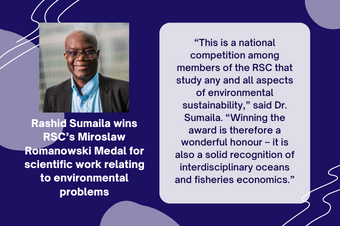
Rashid Sumaila wins RSC’s Miroslaw Romanowski Medal for scientific work relating to environmental problems
Dr. Rashid Sumaila, University Killam professor in UBC Science’s Institute for the Oceans and Fisheries, as well as the School of Public Policy and Global Affairs in the Faculty of Arts, has won the Royal Society of Canada (RSC)’s Miroslaw Romanowski Medal for scientific work relating to environmental problems.
“This is a national competition among members of the RSC that study any and all aspects of environmental sustainability,” said Dr. Sumaila. “Winning the award is therefore a wonderful honour – it is also a solid recognition of interdisciplinary oceans and fisheries economics.”
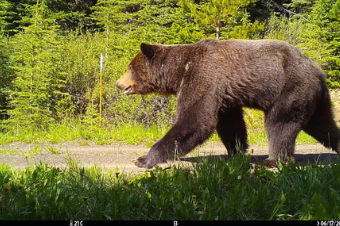
Canada ranks third worldwide in permeable landscapes for wildlife
“Researchers created the first global map of where mammals are most likely to move between protected areas, such as national parks and nature reserves. Lead author Dr. Angela Brennan, a research associate at the Institute for Resources, Environment and Sustainability, says she hopes the data will help countries measure their success at protecting biodiversity over time.”
Read more in the article Canada ranks third worldwide in permeable landscapes for wildlife by former IBioS Research Associate Dr. Angela Brennan and colleagues.
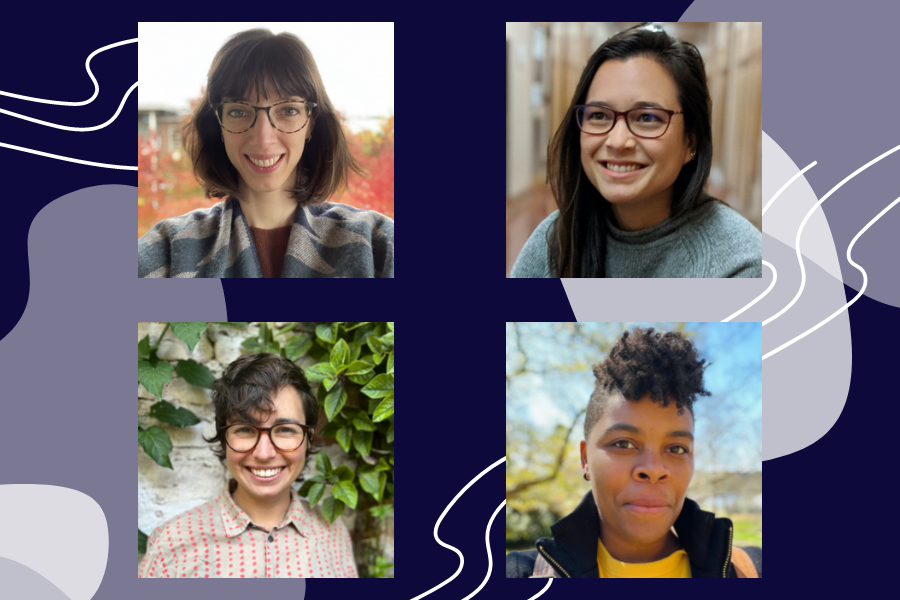
Meet Our New Hires
We are thrilled to announce that five fabulous scholars will be joining the IBioS Collaboratory between 2022 and 2023. They are exceptionally talented scientists who are passionate about biodiversity and related topics. Please welcome our new Assistant Professors.

